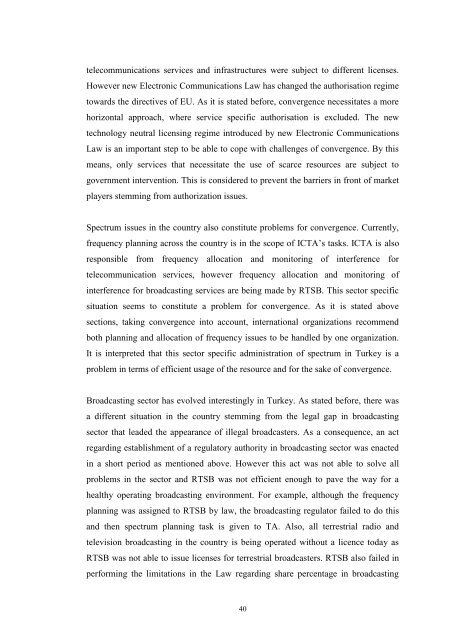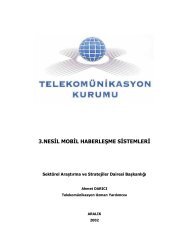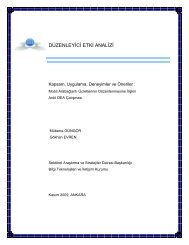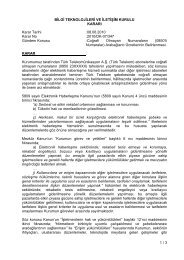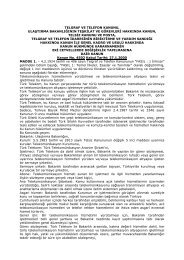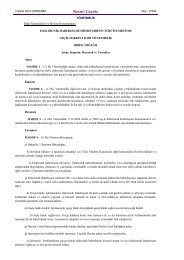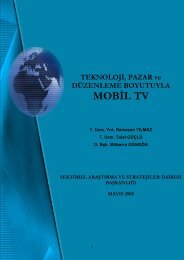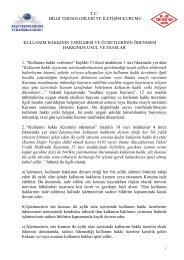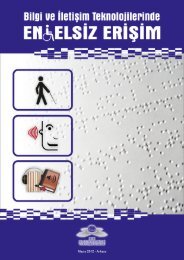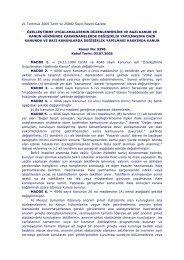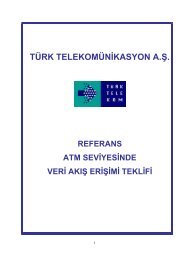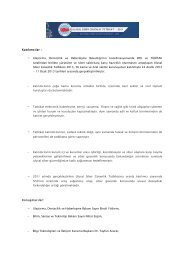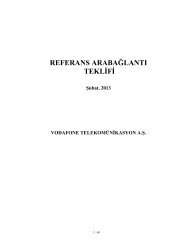city university london school of social sciences convergence of ...
city university london school of social sciences convergence of ...
city university london school of social sciences convergence of ...
Create successful ePaper yourself
Turn your PDF publications into a flip-book with our unique Google optimized e-Paper software.
telecommunications services and infrastructures were subject to different licenses.However new Electronic Communications Law has changed the authorisation regimetowards the directives <strong>of</strong> EU. As it is stated before, <strong>convergence</strong> necessitates a morehorizontal approach, where service specific authorisation is excluded. The newtechnology neutral licensing regime introduced by new Electronic CommunicationsLaw is an important step to be able to cope with challenges <strong>of</strong> <strong>convergence</strong>. By thismeans, only services that necessitate the use <strong>of</strong> scarce resources are subject togovernment intervention. This is considered to prevent the barriers in front <strong>of</strong> marketplayers stemming from authorization issues.Spectrum issues in the country also constitute problems for <strong>convergence</strong>. Currently,frequency planning across the country is in the scope <strong>of</strong> ICTA‟s tasks. ICTA is alsoresponsible from frequency allocation and monitoring <strong>of</strong> interference fortelecommunication services, however frequency allocation and monitoring <strong>of</strong>interference for broadcasting services are being made by RTSB. This sector specificsituation seems to constitute a problem for <strong>convergence</strong>. As it is stated abovesections, taking <strong>convergence</strong> into account, international organizations recommendboth planning and allocation <strong>of</strong> frequency issues to be handled by one organization.It is interpreted that this sector specific administration <strong>of</strong> spectrum in Turkey is aproblem in terms <strong>of</strong> efficient usage <strong>of</strong> the resource and for the sake <strong>of</strong> <strong>convergence</strong>.Broadcasting sector has evolved interestingly in Turkey. As stated before, there wasa different situation in the country stemming from the legal gap in broadcastingsector that leaded the appearance <strong>of</strong> illegal broadcasters. As a consequence, an actregarding establishment <strong>of</strong> a regulatory authority in broadcasting sector was enactedin a short period as mentioned above. However this act was not able to solve allproblems in the sector and RTSB was not efficient enough to pave the way for ahealthy operating broadcasting environment. For example, although the frequencyplanning was assigned to RTSB by law, the broadcasting regulator failed to do thisand then spectrum planning task is given to TA. Also, all terrestrial radio andtelevision broadcasting in the country is being operated without a licence today asRTSB was not able to issue licenses for terrestrial broadcasters. RTSB also failed inperforming the limitations in the Law regarding share percentage in broadcasting40


